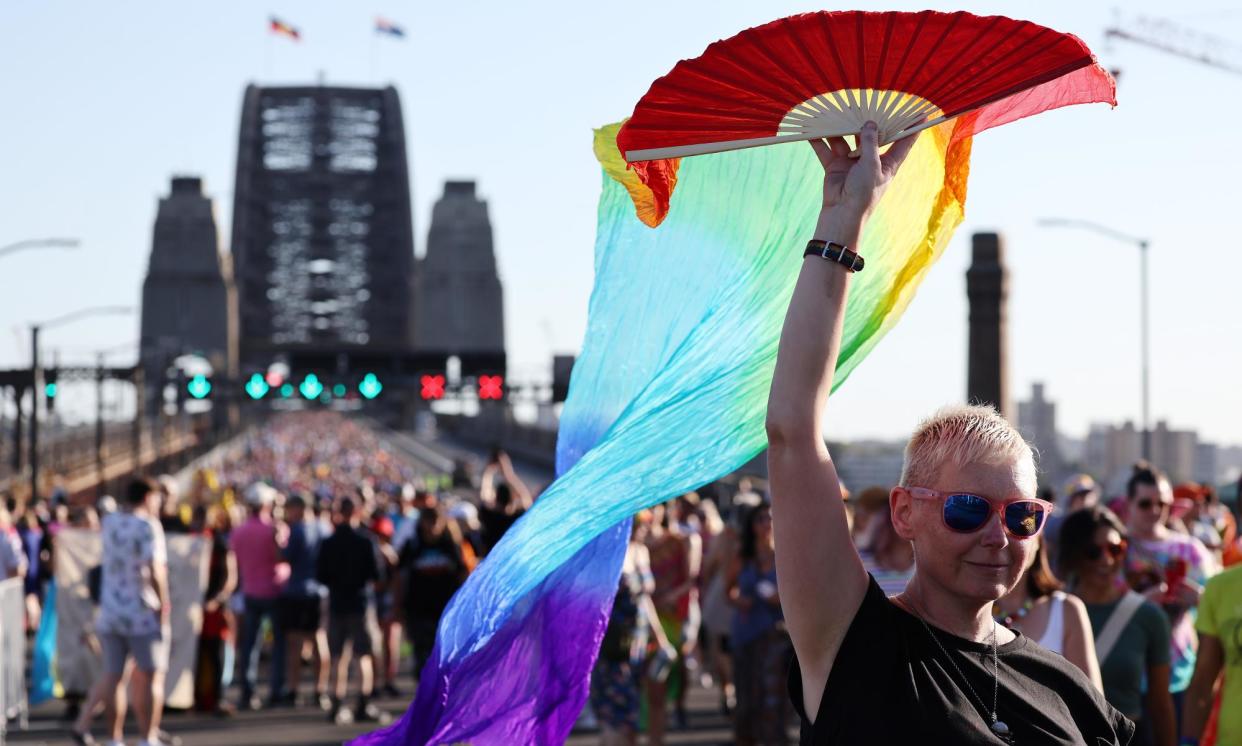‘We have listened’: gender identity question added to Australia’s 2026 census after federal government backflip

The government is adding a second new question to the 2026 census, restoring a proposed question on gender identity along with one on sexuality after a backlash over its initial decision to dump both.
The treasurer, Jim Chalmers, revealed on Sunday that the government had advised the Australian Bureau of Statistics (ABS) that a new single topic on gender and sexual orientation would be included in the next census, likely to include two questions, not just one.
“We have listened to the community,” Chalmers told ABC TV’s Insiders program. “LGBTIQ+ Australians matter. They have been heard, and they will count in the 2026 census.”
Guardian Australia understands the new questions will be in addition to an existing question on respondents’ sex at birth and likely to be in a separate section of the survey, allowing the option to nominate sexual orientation and also current gender identity, or to decline to answer.
Two weeks ago the government dumped a plan to add five new topics to the 2026 census. The topics proposed asking all respondents who had moved house in the previous 12 months why they had done so, and adding questions on Aboriginal and Torres Strait Islander cultural identity, as well as gender, sexual orientation and variations on sex characteristics.
The decision blindsided LGBTQ+ advocates, who had been working with the ABS to craft new questions in line with a Labor election promise to add topics to the five-yearly census, after a protest that the Morrison government had excluded them in 2021.
After days of controversy, the prime minister, Anthony Albanese, announced on 30 August that a new question – “one question” – would proceed, on sexuality.
“There were proposals for wide-ranging changes in the census and that has been rejected because we think that that’s not appropriate,” Albanese told ABC radio at the time. “But in 2024, or 2026, the world has changed as well. It used to be … people’s sexuality wasn’t as open or as accepted as it is today. And therefore the census, in terms of modernising, reflecting some of the changed values which are there, by asking a question – I think that people would think that was a pretty commonsense outcome.”
In fact, the government is adding a single new “topic” despite the original plan describing sexuality, gender and variations on sex characteristics as three separate topics. The new topic appears likely to include two new questions, though the ABS will determine how those should be worded.
“The prime minister was talking about making one change and that’s what we’re doing,” Chalmers said on Sunday. “We’re introducing a topic for the first time which covers both sexual orientation and gender. The ABS will find the best way to do that.”
The issue sparked public controversy when the government forced the ABS to abruptly cancel a briefing two weeks ago that was to have unveiled proposed questions, ahead of the testing stage that precedes final drafting.
The government’s initial intervention was driven by concern at senior levels that the proposed wording and sequencing of new questions on sex and gender could have inflamed bigotry and reignited the culture wars.
Chalmers said the government “had good intentions” in deciding initially not to proceed. But he acknowledged the move had not been well received in the LGBTQ+ community.
“The message that we want to ensure that Australians hear from us today is that we understand the feedback that we got,” he said. “We said that we would find the best way to do this and I believe that we have and we will.”
Chalmers said the ABS would craft and test the new questions ahead of their inclusion in the census in 2026.
On Sunday, the assistant treasury minister, Andrew Leigh, who is responsible for the census process, issued a statement confirming that the new single topic would omit specific questions on sex characteristics and would no longer include 15-year-olds.
“These questions will only be asked of people aged 16 and over, and the ABS has told the government that people will have the option not to answer,” Leigh said.
“The ABS did not recommend a topic on variations of sex characteristics (intersex status) in the census, and it will not be included.”
Leigh said “testing indicated high-quality data could not be collected due to the technical complexity of the topic”.
The proposed third extra question, now abandoned, would have asked about reproductive organs and hormones.
“Has the person been told they were born with a variation of sex characteristics?” the proposed draft question asked, with a bracketed following paragraph saying that “sometimes called intersex or differences of sex development, this question refers to innate reproductive development, genetics or hormones that do not fit the medical norms for female or male bodies” and that “these specific characteristics may be noticed at birth or develop in puberty”.
Leigh said the government would “continue to work with the intersex community about ways of gathering information in other ABS surveys”.
He said the government’s position was reached after further engagement with the community and the ABS.
“We value every Australian, regardless of their faith, race, gender or LGBTIQ+ status,” he said.
Leigh said the government would draft a legislative instrument to implement the changes and introduce it before the end of the year.


